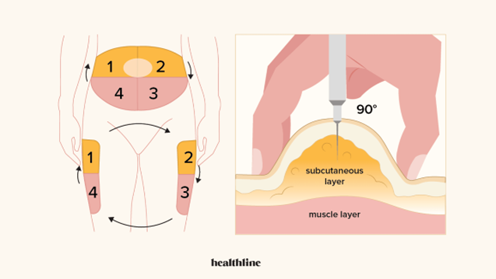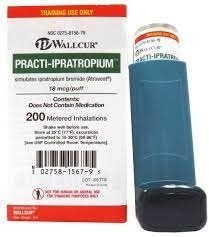A client with psychosis who is receiving an antipsychotic medication is continuously rubbing the back of the neck. Which nursing intervention is best for the nurse to implement?
Obtain an extra pillow for the client to use at night.
Provide the client with a heating pad to place around the neck.
Give PRN prescription for benztropine.
Obtain a prescription for physical therapy services.
The Correct Answer is C
Continuous rubbing of the back of the neck can be a side effect of antipsychotic medication, known as acute dystonia. Benztropine is an anticholinergic medication that can effectively treat acute dystonia. Therefore, the nurse should give a PRN prescription for benztropine to relieve the client's discomfort. Options a, b, and d do not address the underlying issue of acute dystonia and are not the best interventions for this particular situation.
Nursing Test Bank
Naxlex Comprehensive Predictor Exams
Related Questions
Correct Answer is A
Explanation
Insulin glargine is a long-acting insulin that is given once daily at the same time every day via subcutaneous injection. Therefore, it is essential to teach the client self-injection skills for daily subcutaneous administration to ensure proper administration of insulin.
Option b is incorrect because insulin glargine is typically given at the same dose every day, not based on before meal blood sugar readings.
Option c is incorrect because insulin glargine is not used for the treatment of severe hypoglycemia, and it should not be administered by someone who is not trained to do so.
Option d is incorrect because ketoacidosis is a serious complication of diabetes mellitus that requires urgent medical atention, and increasing medication dosage is not appropriate for this condition.

Correct Answer is C
Explanation
Ipratropium is a medication used to treat chronic obstructive pulmonary disease (COPD)1. When using an ipratropium inhaler for the first time or if it has not been used for a while, it is important to prime the inhaler by spraying it into the air away from your face1. However, the inhaler only needs to be primed with 2 sprays, not 71. If the client primes the inhaler with 7 pumps, it indicates that additional teaching is needed.

Whether you are a student looking to ace your exams or a practicing nurse seeking to enhance your expertise , our nursing education contents will empower you with the confidence and competence to make a difference in the lives of patients and become a respected leader in the healthcare field.
Visit Naxlex, invest in your future and unlock endless possibilities with our unparalleled nursing education contents today
Report Wrong Answer on the Current Question
Do you disagree with the answer? If yes, what is your expected answer? Explain.
Kindly be descriptive with the issue you are facing.
